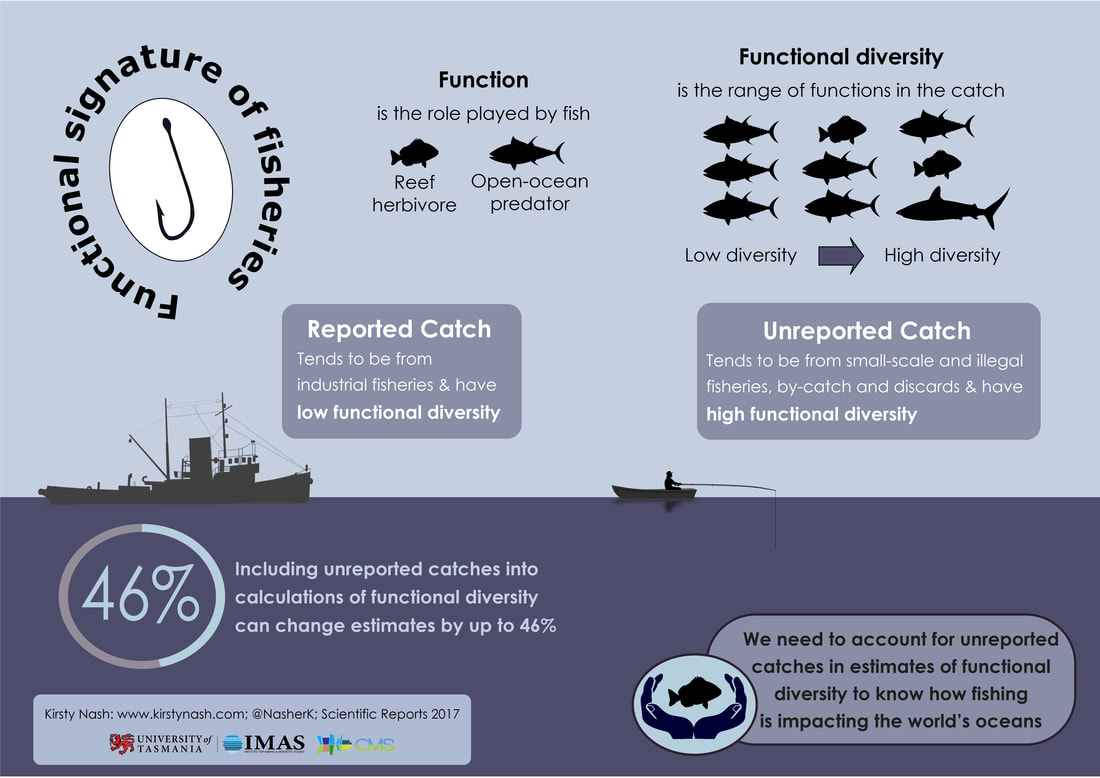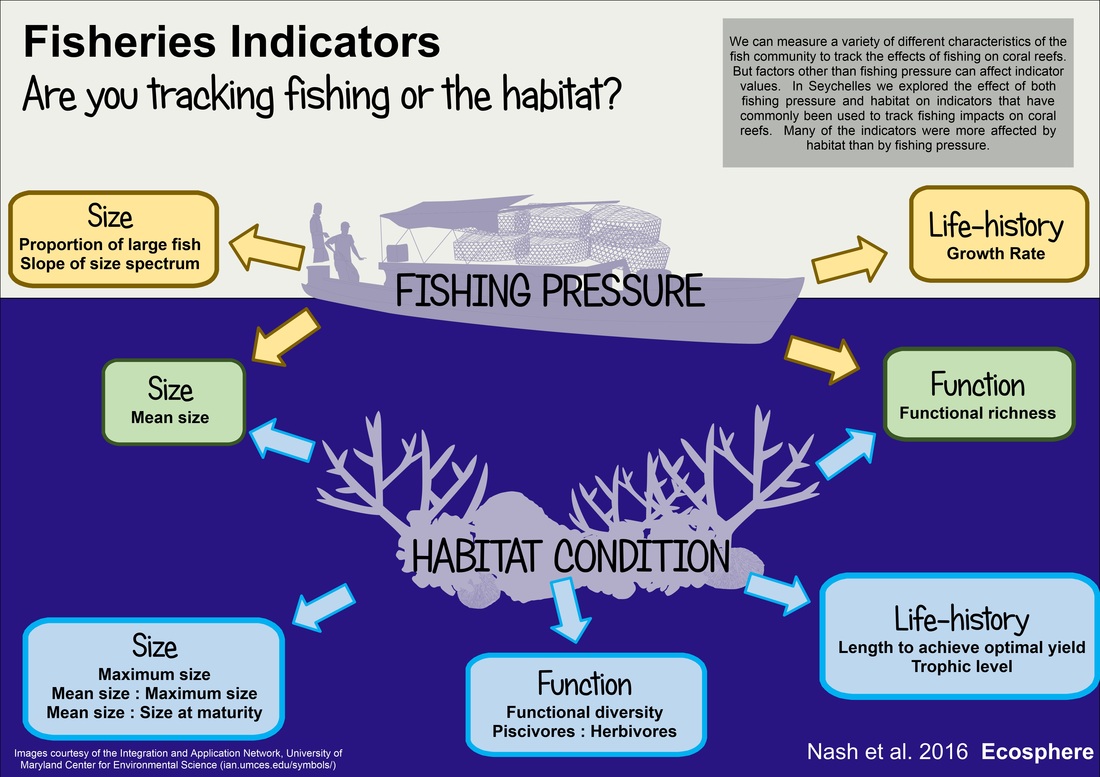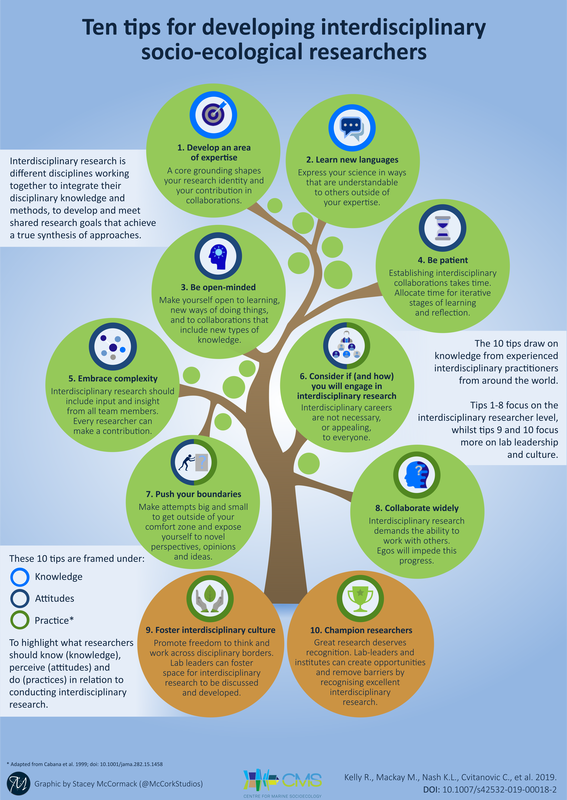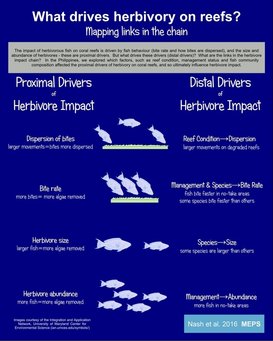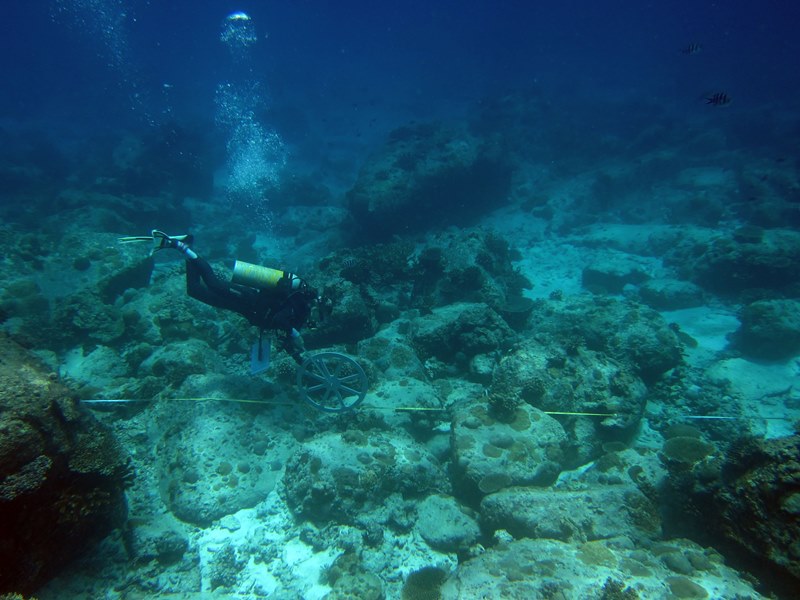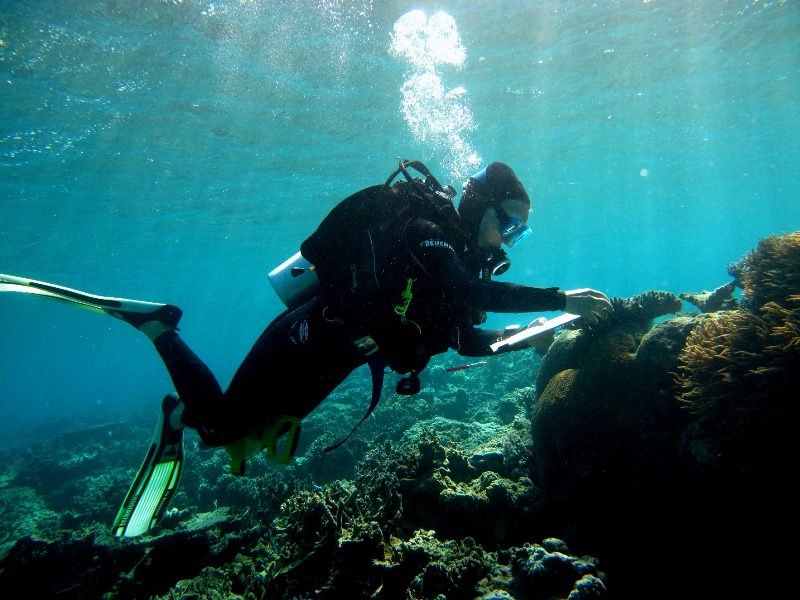Research interests
My research is increasingly interdisciplinary, exploring sustainability challenges facing the world's oceans by bringing together collaborators working in marine science, food systems, public health, psychology, and governance. Key research interests are:
Interplay between ocean & human healthUnderstanding the trade-offs and synergies between ocean health (particularly ecosystem function) and human health (including nutrition security and human well-being).
Example publications:
Resilience of marine social-ecological systems
Exploring factors that contribute to the resilience of social-ecological systems and managing for resilience.
Example publications:
Fisheries indicators & Small-scale fisheries
Exploring ecologically focused fisheries indicators, particularly in the context of small-scale and coral reef fisheries.
Example publications:
Habitat complexityUnderstanding the effect of habitat complexity on associated fish communities.
Example publications:
|
Linking food production across land & seaUnderstanding the links and trade-offs between terrestrial, freshwater and marine food production systems with respect to sustainability and food security.
Example publications:
The future or our oceansApproaches to creating shared visions of the future for the world's oceans to provide a 'mobilising narrative' of the "ocean we need for the future we want".
Example publications:
Interdisciplinary research
Exploring ways to support interdisciplinary research.
Example publications:
Fish functional ecology
Understanding the functional ecology of fish, in particular their spatial ecology and movements related to foraging.
Example publications:
| ||||||||||||||||||||||||
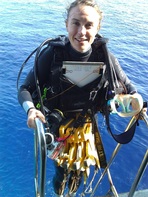
Important themes underpinning my work are:
My PhD research explored scale dependent function in reef fish, and its application to the evaluation of coral reef resilience, by (1) Characterising the spatially explicit functional role of reef fish; (2) Evaluating the interaction of fish with coral reef structure across spatial scales; and (3) Using this information to evaluate the effectiveness of cross-scale redundancy of function in fish as an indicator of resilience in coral reef ecosystems. The distribution of body sizes of both individuals and species within fish communities was a central theme underlying the different aspects of my project. The research outcomes provided fundamental understanding of the spatial scales at which fish interact with their environment and perform functions critical to coral reef condition.
Past projects include: (1) exploring methods for setting fishery targets for data poor fisheries using fisheries-independent data; and (2) understanding how the functional impact of fishes change on reefs of different condition through the interaction between variation in the foraging movements of fishes and their grazing rates.
- Resilience of marine social-ecological systems
- Nutrient content of fish
- Body size distributions and body size as a proxy for fish behaviour
- Cross-scale and spatial resilience
- Development of novel analytical techniques & approaches
My PhD research explored scale dependent function in reef fish, and its application to the evaluation of coral reef resilience, by (1) Characterising the spatially explicit functional role of reef fish; (2) Evaluating the interaction of fish with coral reef structure across spatial scales; and (3) Using this information to evaluate the effectiveness of cross-scale redundancy of function in fish as an indicator of resilience in coral reef ecosystems. The distribution of body sizes of both individuals and species within fish communities was a central theme underlying the different aspects of my project. The research outcomes provided fundamental understanding of the spatial scales at which fish interact with their environment and perform functions critical to coral reef condition.
Past projects include: (1) exploring methods for setting fishery targets for data poor fisheries using fisheries-independent data; and (2) understanding how the functional impact of fishes change on reefs of different condition through the interaction between variation in the foraging movements of fishes and their grazing rates.
